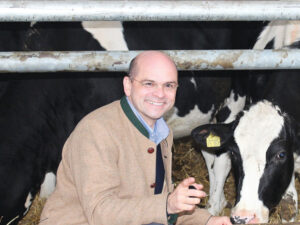
Startups are now producing “synthetic dairy” products, including cheese, without relying on traditional livestock. Using precision fermentation, these companies derive milk proteins from yeast, eliminating the need for live ruminants like cows or goats. This innovation aims to challenge the plant-based milk market and disrupt traditional dairy farming practices. If successful, synthetic dairy could offer consumers real dairy products with reduced environmental impact and reshape the future of the global dairy industry. However, challenges such as scaling up production and consumer acceptance remain to be addressed.
In a revolutionary development, startups are now producing real dairy without the need for traditional livestock. The emergence of “synthetic dairy” is challenging the dominance of plant-based milk alternatives and could potentially reshape the dairy industry’s future.
One of the pioneers in this field is Better Dairy, a three-year-old British cheesemaker, which has successfully created a cheese that looks, smells, and tastes like the real deal, specifically mature cheddar. The process involves using yeast as the main ingredient, which is then fed sugar and converted into milk proteins, akin to brewing.
While plant-based milk alternatives have gained popularity in recent years, accounting for a significant portion of milk sales, they often fall short of replicating the authentic taste and texture of dairy products. Lovers of traditional dairy still rely on cows, goats, and ewes for their beloved dairy delights. However, this could soon change with the rise of “precision fermentation” companies like Better Dairy.
The concept of precision fermentation holds the promise of revolutionizing the dairy market by providing actual dairy products without relying on live ruminants. These innovative startups aim to tap into the vast $900 billion global dairy market by circumventing the need for livestock. If successful, this technology could offer consumers dairy products that closely resemble the originals and have significant environmental benefits by reducing the carbon footprint associated with traditional dairy farming.
As the synthetic dairy industry continues to develop and improve its processes, it poses a potential threat to the plant-based milk market, which has seen considerable growth in recent years. Moreover, precision fermentation has the potential to disrupt traditional dairy farming practices, as it offers a more sustainable and resource-efficient alternative.
As consumers become increasingly conscious of their food choices and environmental impact, the success of precision fermentation startups could herald a transformative shift in the dairy industry. The potential to enjoy actual dairy products without cows or goats could reshape consumption patterns and contribute to a more sustainable future for the dairy sector. However, challenges such as scaling up production and consumer acceptance remain, and it will be interesting to see how this technology evolves and shapes the future of dairy in the years to come.




